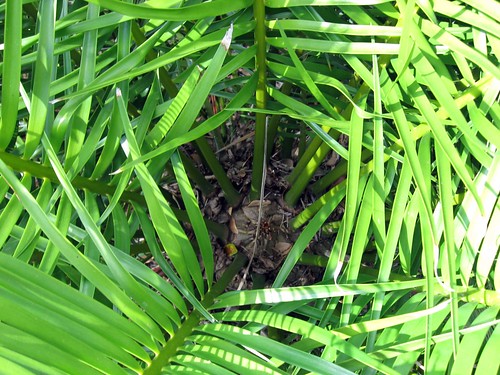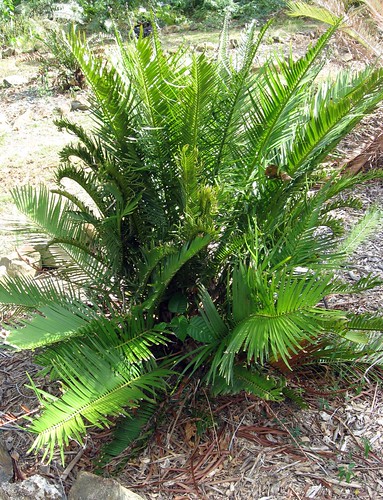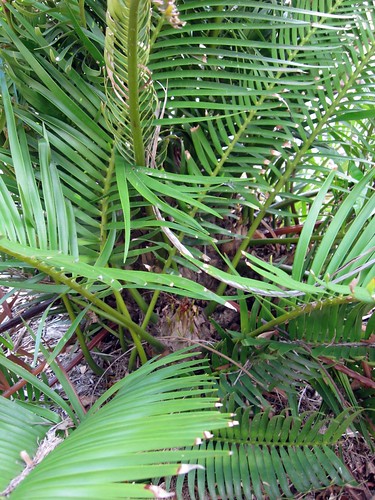This is the very attractive Zamia inermis. Its from the Americas, Veracruz, Mexico to be precise and is like a lot of Zamia a rather attractive proposition for the tropical gardener. In fact it may be more attractive than most because inermis means literally unarmed a reference to the absence of spikey bits on this species.

Notwithstanding its attractiveness though Z. inermis is a cycad in big trouble. A dramatic reduction in its habitat together with overcollection have left a single wild population extant and that population is at constant risk from wildfire. Worse is to come however.

Zamia inermis suffers from extremely low population recruitment in the wild. Female cones don't seem to produce many seeds. This is not, however, typical of the species. Cultivated females produce good numbers of seeds when artificially pollinated which suggests the issue in the wild is a lack of pollen. It is believed that this is due to the plants' natural pollinators being wiped out by injudicious use of insecticides. Many cycads have quite specific pollinators so this is a realistic hypothesis.

No less an authority than LA cycad legend Loran Whitelock (of Ceratozamia whitelockiana and Encephalartos whitelockii fame - yeah, 2 species named on your honour = major cycad legend) suggests that "virtually no regeneration is taking place in the wild". This is really bad news for the wild population and this may be one that has to be nursed in a captive population for the forseeable future. The good news however is that as Loran noted in 2002's The Cycads "without doubt Z. inermis could become a very popular landscape plant if it were available in sufficient numbers. There is no reason why it could not be artificially propagated in numbers large enough to secure its place in horticulture". That remains true today and is pretty much where the species sits now secure but not yet widespread in horticulture. In the early part of this year seed produced by Fairchild Tropical Garden in Florida was offered to growers through the Cycad Society's seedbank and plants themselves are available from a number of specialist nurseries. I do however worry that in the future collectors, nurseries and botanic gardens may be the only place we can see this one.
No comments:
Post a Comment